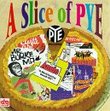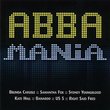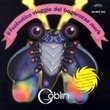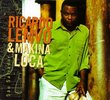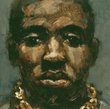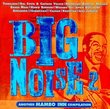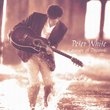| All Artists: Ronnie Earl Title: Living in the Light Members Wishing: 4 Total Copies: 0 Label: Stony Plain Music Original Release Date: 1/1/2009 Re-Release Date: 6/2/2009 Genres: Blues, Pop Styles: Contemporary Blues, Electric Blues Number of Discs: 1 SwapaCD Credits: 1 UPC: 772532134026 |
Search - Ronnie Earl :: Living in the Light
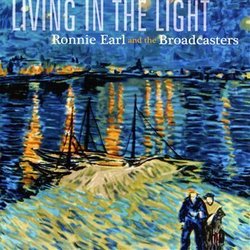 | Ronnie Earl Living in the Light Genres: Blues, Pop
This guitarist creates his most intense, emotional and passionate album to date — It's a simple question we ask of each other every day: "How are you?" And when Ronnie Earl answers "Fine, really fine," it's an indication th... more » |
Larger Image |
CD DetailsSynopsis
Product Description This guitarist creates his most intense, emotional and passionate album to date It's a simple question we ask of each other every day: "How are you?" And when Ronnie Earl answers "Fine, really fine," it's an indication that all is well with his world, and it means that our lives are greatly improved as well. In standard music industry terms, Ronnie Earl is a bright and shining anomaly. He doesn't tour, he doesn't show up on David Letterman, he doesn't play at rock festivals, he rarely gives interviews, and he isn't the slightest bit interested in what Joni Mitchell called "the star-making machinery." But he does make some remarkable, memorable and deeply touching recordings, and a wonderfully intimate DVD. Like his other albums, Living in the Light is a varied mix of blues, soul and gospel, all marked by his distinctive guitar style and the passionate conviction he brings to every track. It is also, perhaps in a contrary way, a record shot through with love, warmth and very real peace. In today's supercharged and often cynical world, Earl's attitude to his life, and the way he wants to reach his listeners, may strike some as unusual, but it's the nature of the man. "I see my music as a way to have a deeper relationship with God, and bring healing and love to the people who listen to it." Ronnie Earl's searing, deeply felt guitar playing permeates every one of the dozen tracks on Living in the Light, but there are many other surprises and deep pleasures to be found. Nine of the dozen songs are originals, written or co-written by Earl. Dave Keller, a singer and guitar player on the New England blues scene, sings two gospel-influenced songs - the powerful opener, "Love Love Love," and Bob Dylan's "What Can I Do for You," which also features a 10-voice choir from Earl's Baptist Church. Kim Wilson, a dear friend, contributes three moving vocals and superbly realized harp parts to the new record. One of them is Robert Jr. Lockwood's classic "Take a Little Walk with Me;" another is a deeply personal song about the Holocaust, "Child of a Survivor." "I'm Jewish, and my parents were survivors, and I never met my grandmother who was killed during the war. I wrote that song with Debbie Blanchard, my minister, and Kim Wilson put his stamp on it. Unusual for a blues record? "It's the deepest blues," he responds. "It's a story that needs to be told; future generations will all need to be reminded of what happened." The contribution of Ronnie Earl's Broadcasters is obvious from the first note. Dave Limina's sterling work on Hammond B3 and piano provides a bedrock for the guitar playing, while drummer Lorne Entress and Jim Mouradian on bass are as solid and uplifting a rhythm section as can be imagined. Ronnie Earl is a thoughtful, gentle man - not always the signature attitude of many blues artists - and it is simply not in him to want to sound either arrogant or glib. "My greatest love in music is the blues; this is my 'mother music.' And I dig deep - I have no choice; playing, for me, is a very emotional experience. I put every particle of my soul into it. He is not interested in guitar technicalities; he plays Stratocasters and Nash guitars, but always says that the person behind the guitars should always be of more interest than the instrument itself. As for defining his style, he can't. "I'm just trying to get into peoples' souls," he says. "I'm just trying to reach peoples' humanity." With his new record for Stony Plain, Living in the Light, he has done exactly that. Similar CDs
Similarly Requested CDs
|
CD ReviewsAll Shades Of Ronnie Jonathan Browne | London United Kingdom | 06/08/2009 (5 out of 5 stars) "In my view the greatest living blues guitarist, Ronnie Earl combines flawless technique, a style informed by players past and present (including two of my own lifelong heroes Otis Rush and Peter Green) but derivative of none, and a tone so clean it would in the hands of lesser musicians serve only to expose their limitations. The most crucial aspect of Ronnie Earl's playing,though, is the justifiably well-documented sheer emotion in his playing, which is capable equally of lighting fires on a par with Buddy Guy and evoking the warmth and spirituality of the man himself. Ronnie is especially adept at what I call "tension and release" blues, opening a track in spectacular fashion with blistering riffs and runs, building to a crescendo and then cooling right down to quiet, sweet single notes. His music encompasses blues, jazz and gospel, sometimes during the same track and always to stunning effect. I start listening to any of Ronnie's albums and for that hour nothing else in the world matters. My wife would happily attest to that. For the above reasons, then, the arrival of a new Ronnie Earl release is a major event in the Browne household, and believe me "Living In The Light" is just that. I won't go through a track-by-track analysis but let's just say that in the space of one album you are floored by the most fiery Chicago Blues imaginable including a belated companion piece to the classic "Blues From The Westside" (from the "Still River" album), you smile at and shuffle your feet to Ronnie's patented brand of lively guitar-and-Hammond fuelled jazz-blues, you're taken down to the Delta with acoustic blues, uplifted (and I speak as an agnostic) by a beautiful Bob Dylan gospel cover including a choir, and soothed by the most serene Sunday morning blues you'll ever hear. Then there is the centrepiece of the album, which I will mention by name. "Child Of A Survivor" serves both as Ronnie's tribute to victims of the Holocaust, which included members of his own family, and a very timely reminder that we must never forget what humans are capable of doing to each other, This heartbreaking sentiment is expressed through the unusual but incredibly effective, and entirely appropriate, medium of a slow, brooding blues featuring a heartfelt vocal from Kim Wilson. If you've not had the pleasure - I'd even say privilege - of hearing Ronnie Earl before, this album will serve as the best possible introduction to a man with a matchless body of work. If like me, though, you're already a devotee of the man's work, you won't be surprised to learn that Ronnie has produced yet another truly wonderful album. Whichever group you belong to, the world around you had better be prepared not to matter for a while." Amazing evolution Wayne Arnzen | Grand Marais, Mn USA | 06/03/2009 (5 out of 5 stars) "Ronnie Earl and the wonderfully talented Broadcasters have taken another step towards music felt as love. The depth of emotionality conveyed here is very rare and makes this release a timeless treasure. Ronnies great clean tone set against the keys and rhythm is unparalled so when you add the power of Kim Wilson magic happens. The production is clear yet warm and the lyrics again go to healing and recovery. The power of this band continues to spiral upward and is worth hundred of listens." Dave Keller shines on this recording! Rachael Rice | Montpelier, VT USA | 07/15/2009 (5 out of 5 stars) "Vermont-based original blues and soul artist Dave Keller lends his talent and time to two tracks on this outstanding effort by Ronnie Earl, including the opening track "Love, Love, Love." This music is a testament and pledge to the transcendent power of soul music, regardless of race or creed, while being deeply rooted in the traditions of all the powerhouses from Stax to Stevie that paved the way for the praises sung by Ronnie and Dave here.
An essential addition to anyone that collects authentic blues and soul." |

 Track Listings (12) - Disc #1
Track Listings (12) - Disc #1
